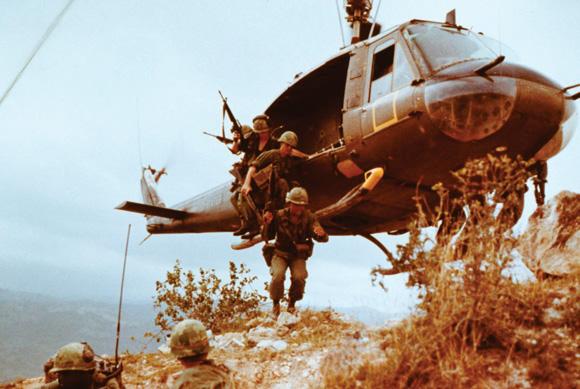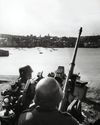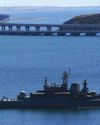Prøve GULL - Gratis
LAST FLIGHT OF THE AIR CAVALRY?
History of War
|Issue 148
Originally supplanting paratroops as a means of delivering soldiers precisely onto the battlefield, air assault became the standard for strategic planning in the Cold War. But as air threats have escalated, has peer-on-peer conflict made the tactic obsolete?

Military helicopter operations came of age during the war in Vietnam in the late 1960s. The NBC evening news broadcasts beamed into US homes in the evenings showed fleets of UH-1 Hueys, with the familiar 'slap' of their blades echoing across the jungles as they hovered over clearings. At the same time, soldiers jumped from the helicopter skids and ran into battle. It was the age of 'search and destroy' tactics, with troops no longer having to march to where the fighting was taking place - they could now be taken directly to it, engage, before being picked up and taken back to the safety of their base.
The concept of the helicopter air assault was continuously developed and adapted during the war. It saw the creation of the Ist Cavalry Division (Airmobile), better known as the 'Ist Air Cav', an army division trained from the outset to operate in unison with helicopters, which they'd ride into battle. Although this new concept presented a tactical advantage, it came at the cost of more than 5,000 of the approximately 12,000 helicopters used during the conflict, as well as countless lives, as landing zones became the fiercest battles of the entire war.
By the latter decades of the Cold War, large-scale helicopter air assaults were still being openly discussed by senior military planners as a way to wage war on the battlefield under the heading of an 'AirLand Battle' or as part of an 'Active Defence' strategy. The Soviet Union suffered horrific air losses during the Afghanistan War, with its Mi-8 Hips and Mi-24 Hinds routinely shot down by ground fire, only for them to shift to a tactic of flying at higher altitudes. Here, they came within the range of CIA-supplied Stinger, shoulder-launched surface-to-air missiles, and were downed in their hundreds, with little chance of survival for the crew and troops aboard.
Denne historien er fra Issue 148-utgaven av History of War.
Abonner på Magzter GOLD for å få tilgang til tusenvis av kuraterte premiumhistorier og over 9000 magasiner og aviser.
Allerede abonnent? Logg på
FLERE HISTORIER FRA History of War

History of War
BATTLE FOR THE CHANNEL ISLANDS
In 1945, the Allies were ready with a daring amphibious operation to liberate Jersey and Guernsey by force
8 mins
Issue 152

History of War
THE BOYNE
Three crowns were on the line when two kings met in Ireland on a sweltering summer's day
11 mins
Issue 152

History of War
PARIS DAVIS
This pioneering member of the United States Army Special Forces received long-overdue recognition for his heroism rescuing comrades during the Vietnam War
6 mins
Issue 152

History of War
FALL OF THE SPARTANS
The powerful Greek city-state overreached itself and saw its influence decline as it failed to integrate conquered territories
4 mins
Issue 152

History of War
MASTERS OF THE SKIES
From rapidly evolving roles to new technologies, historian and airpower expert John Curatola discusses how fighter planes shaped the Second World War
9 mins
Issue 152

History of War
TEA WITH TRAITORS
A progressive educator celebrated her birthday with a tea party for dissident friends – unaware that a Gestapo informant was among them
9 mins
Issue 152

History of War
CHURCHILL IN THE TRENCHES
How Britain's future war leader earned respect and redemption on the Western Front
13 mins
Issue 152

History of War
"MORE DANGEROUS THAN THE 1950S"
Do we need to relearn the Cold War's fear of mutually assured destruction in our unregulated nuclear landscape?
3 mins
Issue 152

History of War
CRIMEA IN THE CROSSHAIRS
The Black Sea peninsular has been coveted by rival interests for centuries, with the current Russian occupation motivated by several factors
5 mins
Issue 152

History of War
ON THE BRINK
Any conflict between the US and China would almost certainly see the American mainland come under direct attack
3 mins
Issue 152
Listen
Translate
Change font size

